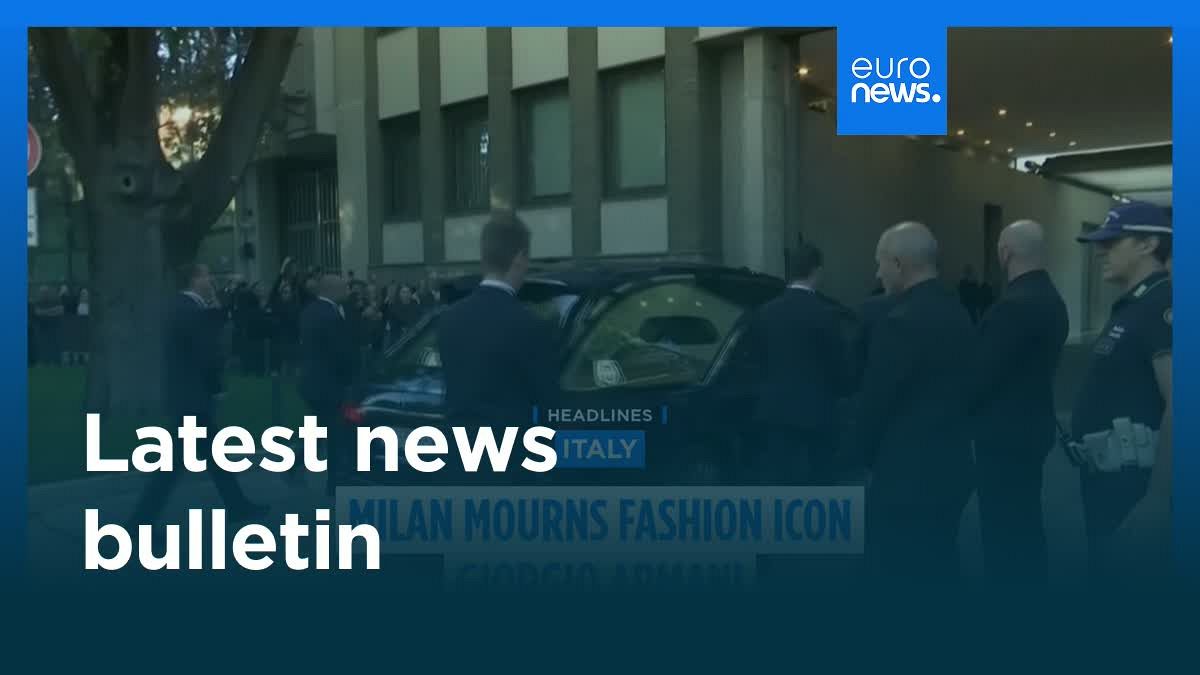Business
Europe Faces Economic Challenges Amid Political Shifts on September 6

Economic pressures and political developments dominated headlines across Europe on September 6, 2025. As the European Union grapples with sluggish economic growth, member states are taking varying approaches to address mounting challenges. The situation raises concerns about the stability of the region’s economy in the coming months.
In Brussels, European Central Bank President Christine Lagarde announced a new monetary policy aimed at stimulating growth. During a press conference, she emphasized the need for decisive action, stating that “the current economic environment demands a proactive response.” The European Central Bank is expected to implement measures that could include adjusting interest rates and increasing support for struggling sectors.
Meanwhile, in the United Kingdom, Prime Minister Rishi Sunak faced criticism for his government’s handling of the economy. Recent reports indicated that the UK economy expanded by only 0.3% in the last quarter, significantly lower than anticipated. Opposition leaders have called for urgent reforms to address the cost-of-living crisis affecting many households. The Prime Minister defended his policies, asserting that “we are on the right track and will see the benefits soon.”
Political tensions also surfaced in France, where the government is grappling with protests over pension reforms. Citizens have expressed their discontent over proposed changes, leading to demonstrations in major cities including Paris. The French government remains firm in its stance, arguing that these reforms are essential for the country’s long-term financial health.
In light of these developments, the International Monetary Fund has revised its growth forecasts for the region. According to a recent report, growth in the Eurozone is projected to be around 1.2% for 2025, down from previous estimates. This adjustment reflects ongoing challenges such as inflationary pressures and geopolitical uncertainties.
The situation is further complicated by rising energy costs, which have significantly impacted both businesses and consumers. Many countries are exploring alternative energy sources to mitigate the effects of these rising prices. In Germany, the government announced plans to accelerate investments in renewable energy, aiming to reduce dependence on fossil fuels.
As Europe navigates these complex issues, the political landscape continues to evolve. Leaders across the continent are under pressure to implement effective strategies that will not only stimulate economic growth but also address the concerns of their constituents. The coming weeks will be critical as governments respond to these pressing challenges while striving to maintain stability in a rapidly changing environment.
-

 Entertainment1 month ago
Entertainment1 month agoAimee Osbourne Joins Family for Emotional Tribute to Ozzy
-

 Politics1 month ago
Politics1 month agoDanny Healy-Rae Considers Complaint After Altercation with Garda
-

 Top Stories3 weeks ago
Top Stories3 weeks agoIreland Enjoys Summer Heat as Hurricane Erin Approaches Atlantic
-

 World2 months ago
World2 months agoHawaii Commemorates 80 Years Since Hiroshima Bombing with Ceremony
-

 Top Stories2 months ago
Top Stories2 months agoFianna Fáil TDs Urgently Consider Maire Geoghegan-Quinn for Presidency
-

 World2 months ago
World2 months agoGaza Aid Distribution Tragedy: 20 Killed Amid Ongoing Violence
-

 World2 months ago
World2 months agoCouple Convicted of Murdering Two-Year-Old Grandson in Wales
-

 World2 months ago
World2 months agoAristocrat Constance Marten and Partner Convicted of Infant Murder
-

 Top Stories2 months ago
Top Stories2 months agoClashes Erupt Between Far-Right Groups and Migrants in Spain
-

 Top Stories2 months ago
Top Stories2 months agoHistoric Dalkey Pub The Queens Reopens Under New Management
-

 World2 months ago
World2 months agoTrump Defends FBI Deputy Director Amid Epstein Files Controversy
-

 Politics2 months ago
Politics2 months agoTragic Crowd Surge at Gaza Aid Center Claims 20 Lives









